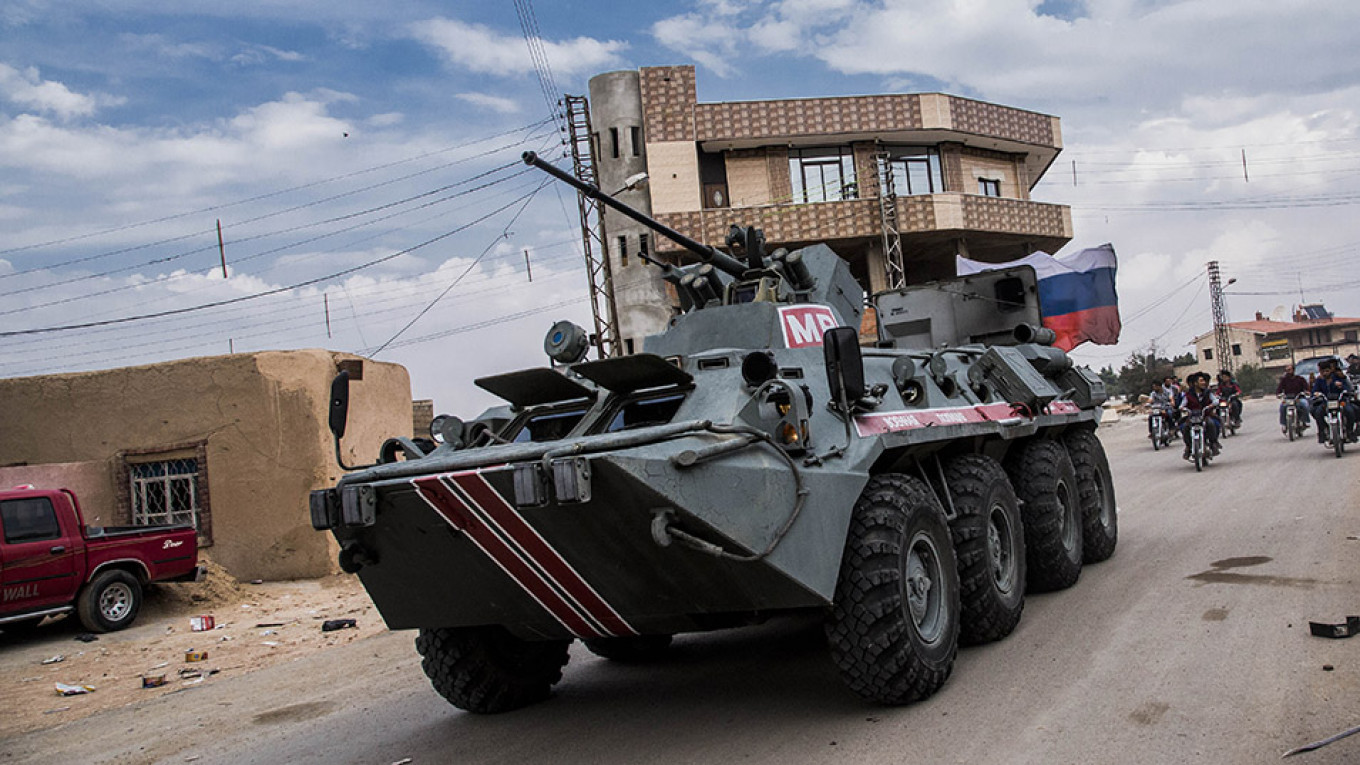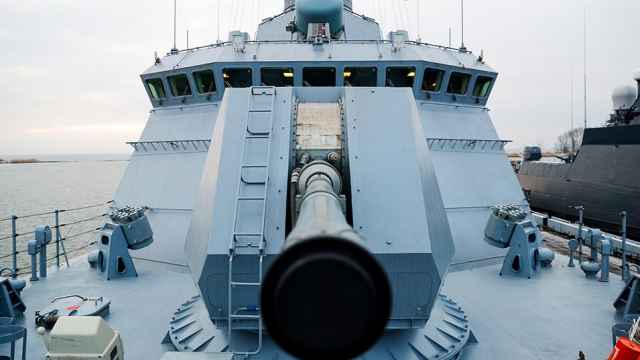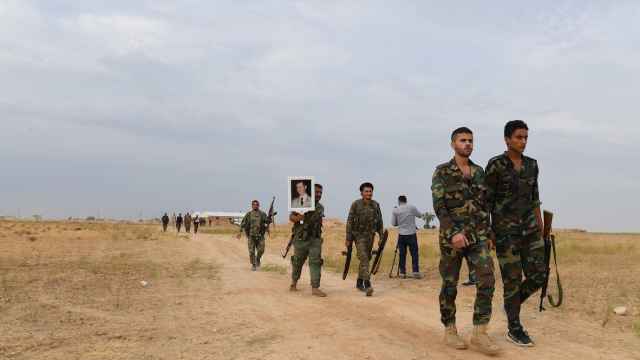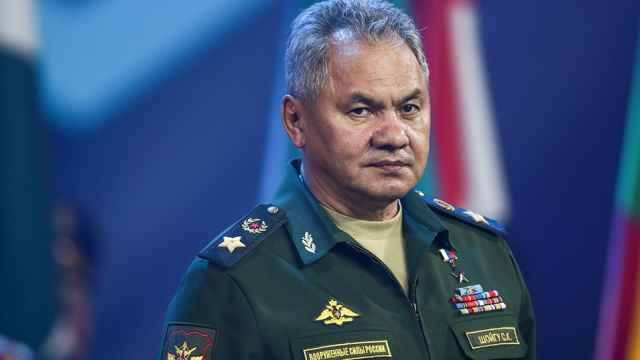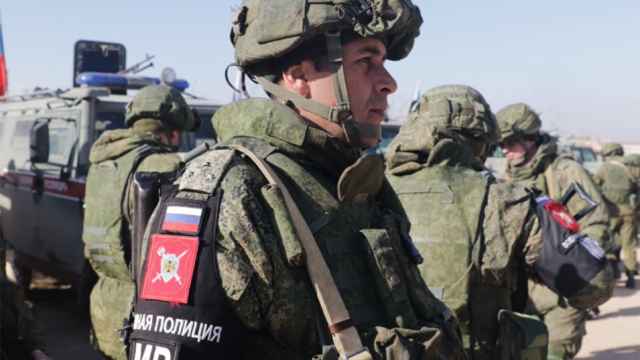But Turkish President Recep Tayyip Erdogan and Vladimir Putin of Russia were quick to hold telephone talks and plan a summit as soon as next week in Moscow, with Russian officials striking a conciliatory tone.
The two men — both leading post-imperial societies they took over in the wake of economic crises — have since 2016 forged an alliance that has riled the West and will be wary of undermining it for now.
"Russia is definitely not looking for a full-scale military confrontation with Turkey, nor is Turkey interested in confronting Moscow over Idlib," said Igor Delanoe, deputy director of the Franco-Russian Observatory in Moscow.
"The stakes are too high, especially for Ankara, considering all the economic leverage Moscow has in its hands to retaliate," he told AFP.
Russia has built the TurkStream gas pipeline across the Black Sea, is constructing Turkey's first nuclear power plant and above all has delivered an S-400 air defense system in a move that horrified NATO, of which Turkey is a key member.
Delanoe said Moscow believed Ankara had failed to comply with a 2018 agreement on Idlib to root out more extreme rebel fighters and the incident had given Turkey a taste of "what could be the cost of a military adventure in Idlib."
'No step back soon'
The incident came as tensions soared after Erdogan — who has vowed not to take a step back in Idlib — gave Syrian forces a Feb. 29 deadline to pull back from their positions.
Idlib is the last remaining rebel bastion in Syria and Turkey wants to keep its influence over the area even once Syria's civil war ends.
Yet this is an obstacle to Moscow's ambition of seeing President Bashar al-Assad regain control of the entire country and confirming the greatest Russian military victory of the post-Soviet era.
Moscow-based expert on Turkey-Russia relations Kerim Has said that Russia's "long-term strategy" for Syria had not changed but it was keen not to antagonize Turkey, especially given the closeness of economic and energy ties as well as the cooperation on the S-400s.
"A full military confrontation in Syria is now less possible" after a day of intense diplomacy, he told AFP, while warning that "risks are brimming on the ground" and any clash could send tensions spiralling again.
"Russia is going to continue its operations in Idlib. It is not going to take a step back soon," he added.
While Russian officials were careful not to provoke Turkey any further, the Kremlin said the Turkish troops were not manning observation points agreed under a 2018 deal but positioned among armed groups deemed by Moscow to be "terrorists."
'Worst-case scenario'
Relations between modern Russia and Turkey — whose predecessor empires fought centuries of wars over influence in the Black Sea region — have swung back and forth over the last years.
There were fears of military confrontation in November 2015 when Turkey shot down a Russian warplane over Syria. But a reconciliation deal was clinched in 2016 and Putin rapidly backed Erdogan when he faced a coup bid that summer.
Even the assassination of Russia's ambassador to Ankara in December 2016 by an off-duty police officer did not derail the intensification of ties as both sides began a joint effort to bring peace to Syria.
Alexey Khlebnikov, Middle East Analyst at the Russian International Affairs Council, founded by the Kremlin to advise on foreign policy issues, said that while risks existed, a direct confrontation was the "worst-case scenario."
He said Russia's immediate priority was not to have Damascus retake all of Idlib but to have the strategic M4 and M5 highways under Syrian army control.
"So far, all indicators show that the two countries are ready for de-escalation," he said, but added: "The risks of an incidental escalation are way higher now. An escalation might happen and we can't rule it out."
A Message from The Moscow Times:
Dear readers,
We are facing unprecedented challenges. Russia's Prosecutor General's Office has designated The Moscow Times as an "undesirable" organization, criminalizing our work and putting our staff at risk of prosecution. This follows our earlier unjust labeling as a "foreign agent."
These actions are direct attempts to silence independent journalism in Russia. The authorities claim our work "discredits the decisions of the Russian leadership." We see things differently: we strive to provide accurate, unbiased reporting on Russia.
We, the journalists of The Moscow Times, refuse to be silenced. But to continue our work, we need your help.
Your support, no matter how small, makes a world of difference. If you can, please support us monthly starting from just $2. It's quick to set up, and every contribution makes a significant impact.
By supporting The Moscow Times, you're defending open, independent journalism in the face of repression. Thank you for standing with us.
Remind me later.


